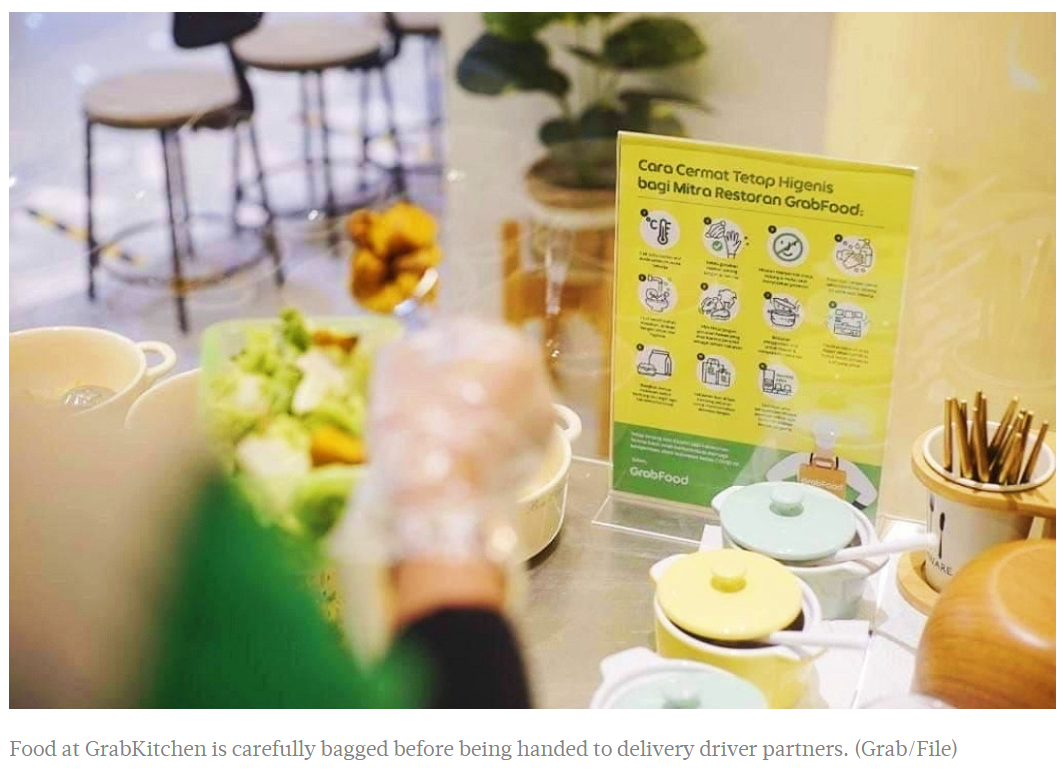Indonesia: Ride-hailing apps rely on deliveries during pandemic
The government’s appeal for people to work from home or travel by personal vehicle has left ride-hailing drivers with almost no customers. As such, ride-hailing providers have strategized to help their driver-partners and keep business afloat.
A report by big data firm Statqo Analytics said Grab and Gojek had experienced 16 percent and 14 percent downturn, respectively, among its active ride-hailing users within the last week of March.
A significant drop was seen on March 19, three days after schools and many businesses closed to prevent the spread of COVID-19.
“Our transportation sector is sloping but our food and logistics delivery orders are still doing quite good,” said Grab Indonesia public affairs head Tri Sukma Anreianno during a press conference on March 23.
The company’s food, logistics and grocery shopping delivery services have seen increased business, said a Grab Indonesia spokesperson.
“We will expand GrabMart, our daily essentials delivery service, as well as GrabAssistant, our on-demand concierge service so that more people can stay home. This would also provide our driver-partners access to more earning opportunities through the Grab platform,” the spokesperson wrote in an email to The Jakarta Post on Wednesday.
To help its employees, Grab has committed to US$10 million in initiatives, such as giving a one-time payout of Rp 1.5 million and Rp 3 Million to any GrabBike or GrabCar driver-partner, respectively, who undergoes the government-mandated quarantine or tests positive for COVID-19, among others.
The initiatives are partly funded by voluntary Grab employee donations that are matched dollar-for-dollar by the company.
Previously, Grab had also given 100,000 face masks, hair nets and hand sanitizers, as well as helmet cleaning vouchers, to their drivers.
Similarly, Gojek’s chief of public policy and government relations, Shinto Nugroho, said on March 23 that since the implementation of physical distancing, the company’s ride-hailing business had seen an overall decrease in orders, while its food and delivery service GoFood and GoSend, were said to be stable.
A study by mobile marketing analytics and attribution platform AppsFlyer showed that downloads of food and beverage delivery apps had risen 23 percent from January to early March in Indonesia, while food delivery orders rose 11 percent.
Gojek chief of corporate affairs Nila Marita said on Wednesday that the company had also halted its house-call massage service GoMassage since March 26 and had implemented health safety measures for house cleaning service GoClean.
“We’ve temporarily stopped the GoMassage service to comply with the government’s call for social distancing,” she told the Post.
She went on to say that for the GoClean service, cleaners went through daily health check-ups and were equipped with masks, gloves and disinfectant. They can also decline a house-call if the customers are visibly ill. Meanwhile, customers must also present travel history from the last 14 days to ensure they have not been in contact with patients under treatment for COVID-19.
Recently, the company’s senior management cut their salaries to allocate more than Rp 100 billion to help drivers and employees cope with low demand as a result of the COVID-19 pandemic.
It has also imported face masks to be distributed to its drivers and the country’s healthcare providers. Drivers who get COVID-19 or become a patient under treatment can also receive financial aid from Gojek and its foundation, Yayasan Anak Bangsa Kita.


 English
English




